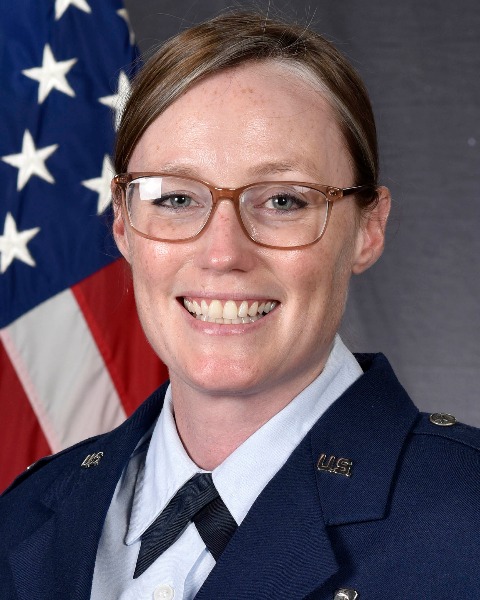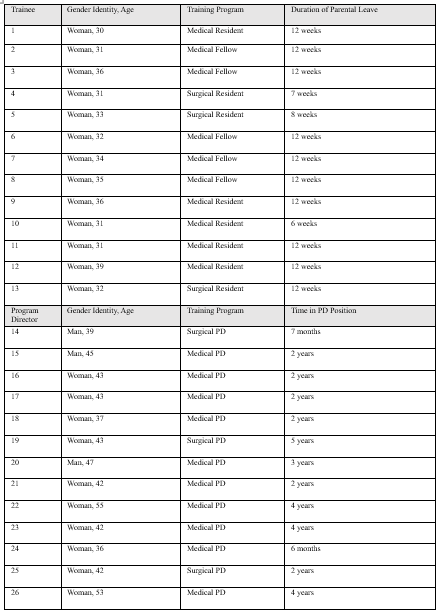Medical Education 7: DEI
Session: Medical Education 7: DEI
463 - Lurking in the Shadows: Time as an Actor in the Narratives of Pregnancy within Graduate Medical Education
Saturday, April 26, 2025
2:30pm - 4:45pm HST
Publication Number: 463.5595
Caitlin Drumm, Uniformed Services University of the Health Sciences F. Edward Hebert School of Medicine, Camp Foster, Armed Forces - AP, United States; Paolo C. Martin, Uniformed Services University of the Health Sciences, Bethesda, MD, United States; Elizabeth V. Schulz, Uniformed Services University of the Health Sciences F. Edward Hebert School of Medicine, Richmond Hill, GA, United States; Tasha Wyatt, Uniformed Services University of the Health Sciences F. Edward Hebert School of Medicine, Bethesda, MD, United States

Caitlin Drumm, MD (she/her/hers)
Associate Professor of Pediatrics
USU
Camp Foster, Armed Forces - AP, United States
Presenting Author(s)
Background: Previous studies have suggested that time factors heavily into trainees’ decision-making around issues of pregnancy within graduate medical education (GME). Trainees are often dissatisfied with parental leave policies and tension exists as they navigate training interruptions. However, our understanding of trainees’ pregnancy experiences is limited because prior studies have conceptualized only two main actors involved in this negotiation, program directors (PDs) and trainees.
Objective: This study aimed to understand the role of a third ever present character that has been overlooked - Time.
Design/Methods: We recruited 13 pairs of residents/fellows who had been pregnant during GME training and their PDs. We conducted semi-structured interviews on trainee and PD experiences, which were then analyzed utilizing narrative analysis to interrogate how individuals assigned meaning to time. The trainee experience was framed as a story and analyzed with respect to interaction, continuity, and situation. We specifically attended to the character of time, its role within the trainee experience, and the influence of the PD in shaping this relationship.
Results: Trainee participants were 84.6% white, 7.7% Hispanic and 7.7%% Asian. Participants were from family medicine, general surgery, internal medicine, obstetrics and gynecology, pediatrics and preventive medicine residency or fellowship programs, Table 1. Time played a prominent role in all women trainees' narratives, always looming in the background. Depending on context, time was positioned either as an ally, assisting trainees with achieving their personal and professional goals, or as a foil, sabotaging their experience. How time was experienced by the trainee was strongly influenced by the attitudes and actions of the PD. As an ally, time was positioned as a malleable commodity that was flexed to meet the individual trainee’s needs. Participants suggested they mostly experienced time as an ally and their willingness to take the time they needed was in large part because their PDs conceptualized time as flexible and fluid, rather than rigid and immutable. As a foil, time was an immovable barrier exerting rigid constraints. Trainees experiencing time as a foil described immense pressure, both internal and external, to limit interruptions and/or not delay graduation.
Conclusion(s): This study positions time as a main actor in trainees’ narratives of pregnancy. The role time plays largely reflects the value assigned to conformity with traditional timelines and whether a program has revised their perspectives to position time as a side character.
Table 1.
 Demographic information for trainee and program director (PD) participants.
Demographic information for trainee and program director (PD) participants. Table 1.
 Demographic information for trainee and program director (PD) participants.
Demographic information for trainee and program director (PD) participants. 
